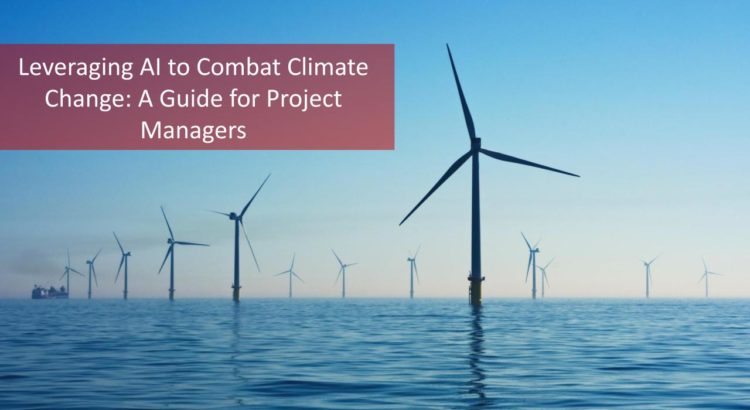With climate change being one of the most pressing issues of our time, project managers across industries are increasingly tasked with developing and executing projects aimed at mitigating its impacts. Emerging technology, particularly artificial intelligence (AI), offers a multitude of solutions. This guide will explore how project managers can incorporate AI in various project phases to combat climate change.
1. Initiation Phase: Identifying Climate Challenges with AI
- Climate Data Analysis: Use AI-powered data analytics tools to assess vast amounts of climate data, understanding the nuances of regional climate changes and identifying the most pressing challenges.
- Stakeholder Engagement: Deploy chatbots and AI-driven surveys to gather stakeholder feedback on climate concerns, ensuring all voices are considered.
2. Planning Phase: Structuring Climate Solutions
- Carbon Footprint Analysis: Employ AI to calculate and predict the carbon footprint of various project alternatives, guiding the team towards the most sustainable solutions.
- Resource Optimization: AI algorithms can assist in efficient resource allocation, ensuring that projects utilize the least amount of energy and produce minimal waste.
3. Execution Phase: AI-powered Climate Combat
- Automated Monitoring Systems: Use AI-driven monitoring tools to track project emissions in real-time, enabling swift corrective action.
- Predictive Maintenance: AI can predict when equipment will fail or become inefficient. This means less unexpected downtime and reduced emissions from faulty equipment.
4. Monitoring & Controlling Phase: Keeping the Climate Goal in Sight
- Energy Consumption Analysis: Continuously monitor energy use with AI and identify patterns that can lead to improved efficiency.
- Risk Prediction: AI models can foresee potential climate risks, such as severe weather events affecting project sites, allowing teams to prepare and adapt.
5. Closing Phase: AI-driven Reporting and Analysis
- Sustainability Reports: AI tools can compile vast amounts of project data to generate comprehensive sustainability reports, showcasing the environmental impact of the project.
- Feedback Loop Creation: Use AI to analyze project outcomes and gather feedback, continually refining strategies for future climate combat initiatives.
In Conclusion
The incorporation of AI into the project management lifecycle provides a unique opportunity to amplify our efforts in combating climate change. For project managers, embracing AI isn’t just about staying updated with the latest tech trends but about leading the charge in building a sustainable future. By integrating AI at every phase, we can ensure that our projects not only meet their objectives but also contribute positively to the health of our planet.
- To learn more about AI and project management check out our Introduction to Analytics and AI Online Training Course.
